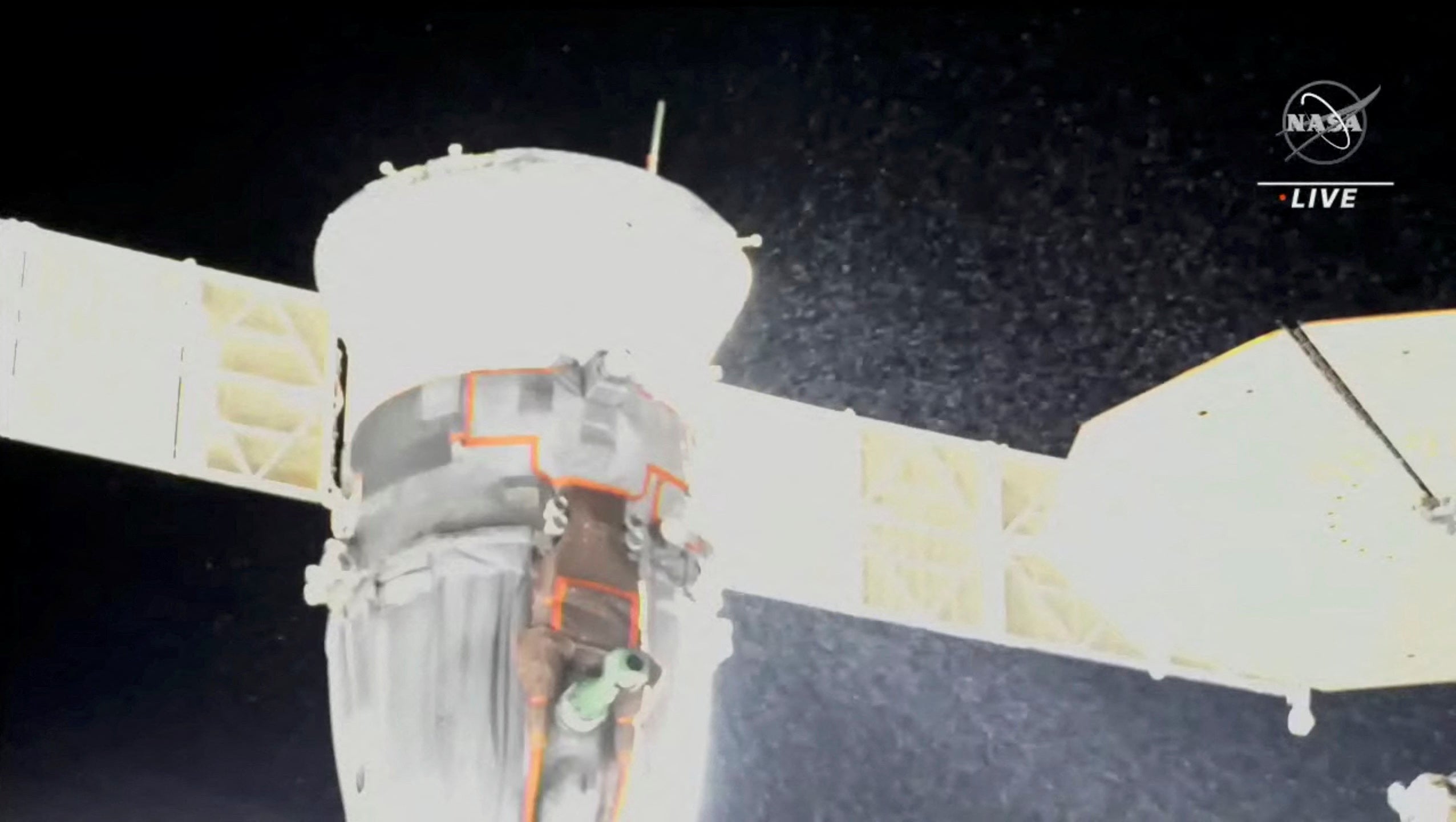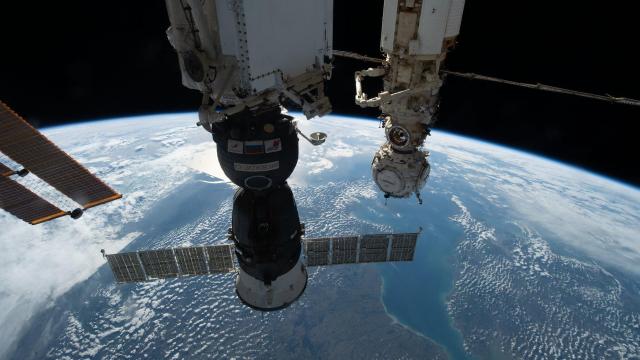Roscosmos says it needs more time to evaluate the flight worthiness of its damaged Soyuz MS-22 spacecraft, leaving the safety of three ISS crew members in doubt.
According to a Roscosmos statement, investigators “will make organizational decisions about future actions of ground specialists and the crew of the ISS Russian segment, as well as on possible changes in the station’s flight program in January 2023 ” as reported by state-run TASS news agency. The Russian space agency had originally hoped to announce a decision on December 27. Two working groups are currently evaluating the spacecraft and the situation, with no specific date given for the January decision.
The incident happened on December 15, when sensors registered a pressure drop in the Soyuz MS-22’s external cooling loop located on the spacecraft’s service module. Cameras showed coolant spewing out from the capsule’s radiator, prompting the cancellation of a planned spacewalk. Roscosmos and NASA both stated that the leak poses no risk to the crew or the International Space Station. The subsequent discovery of a 0.8-millimetre-wide hole led to speculation that the spacecraft’s radiator was struck by an errant particle.

The Soyuz’s thrusters worked fine during subsequent tests, but questions remain about temperature regulation within the crew compartment and whether or not the capsule can safely carry three crew members, NASA astronaut Frank Rubio and Roscosmos cosmonauts Sergey Prokopyev and Dmitri Petelin, back home. The remaining four crew members are already accounted for, having seats aboard the SpaceX Crew Dragon parked outside.
That the decision on the craft’s flight worthiness has been pushed to January is not necessarily problematic. Roscosmos is already in the midst of preparing the replacement Soyuz MS-23 for launch, with Sergei Krikalev, head of Roscosmos’s human spaceflight program, telling reporters on December 23 that the mission could be expedited by several weeks and launched in mid-February. Should the MS-22 be deemed unfit for human use, an uncrewed MS-23 would launch to the ISS and dock in autonomous mode. As for the MS-22, it would be sent back to Earth without passengers and recovered for inspections. That said, the capsule’s damaged service module will not return to Earth, as it gets discarded prior to re-entry.
We may never know the true cause of the Soyuz leak, but Roscosmos seems certain that the hole was created by a foreign object of some sort, either a tiny meteor or space debris. The space agency, using cameras fitted to a robotic arm, performed further inspections on December 18, leading it to conclude that “the temperature control system radiator was ruptured because of external mechanical damage,” according to Roscosmos and as TASS reported on December 27. The Russian space agency is effectively ruling out the possibility that a pre-manufactured radiator vent hole was the source of the leak, as NASA suggested in a statement.
Should a major emergency occur between now and the arrival of the replacement Soyuz, Rubio, Prokopyev, and Petelin would have no choice but to use the damaged MS-22 as a lifeboat and hope for the best. And in fact, Roscosmos has provided the trio with a modified set of instructions to that effect.
A full-scale evacuation of the ISS has never happened, but such a thing can never be ruled out, whether on account of threatening space junk or some type of catastrophic malfunction. Alarmingly, a piece of space junk flew near the space station last week, prompting a debris avoidance manoeuvre — and likely some very elevated heart rates.
Related: Astronauts Forced to Take Shelter as Debris Cloud Threatens Space Station
